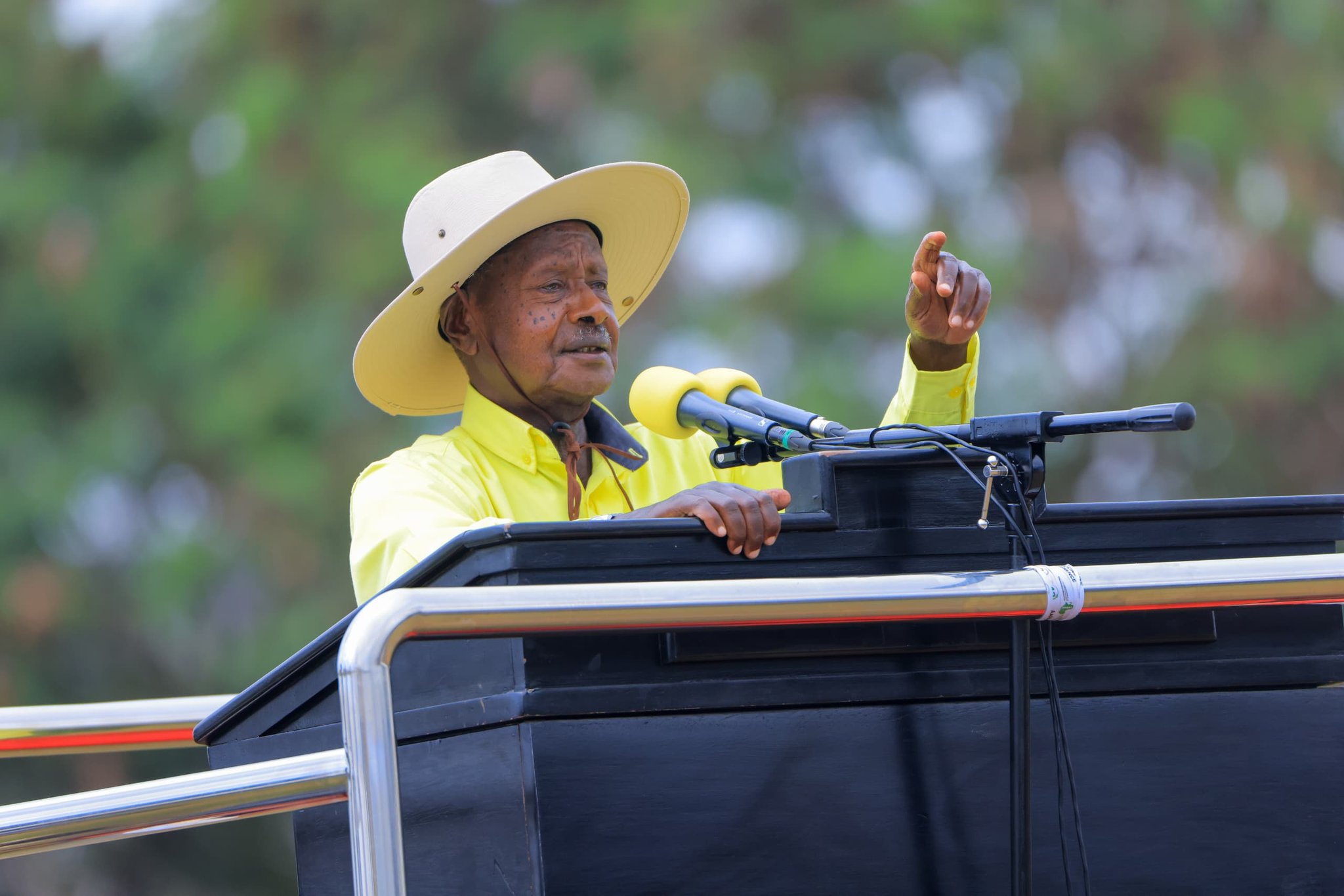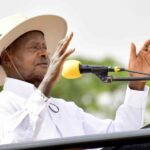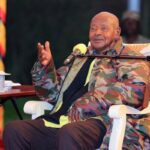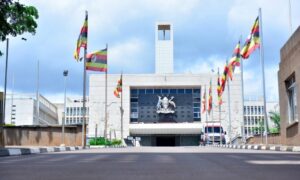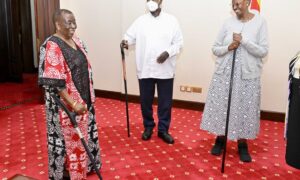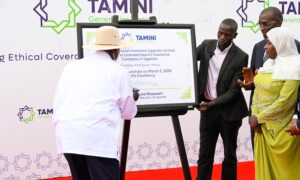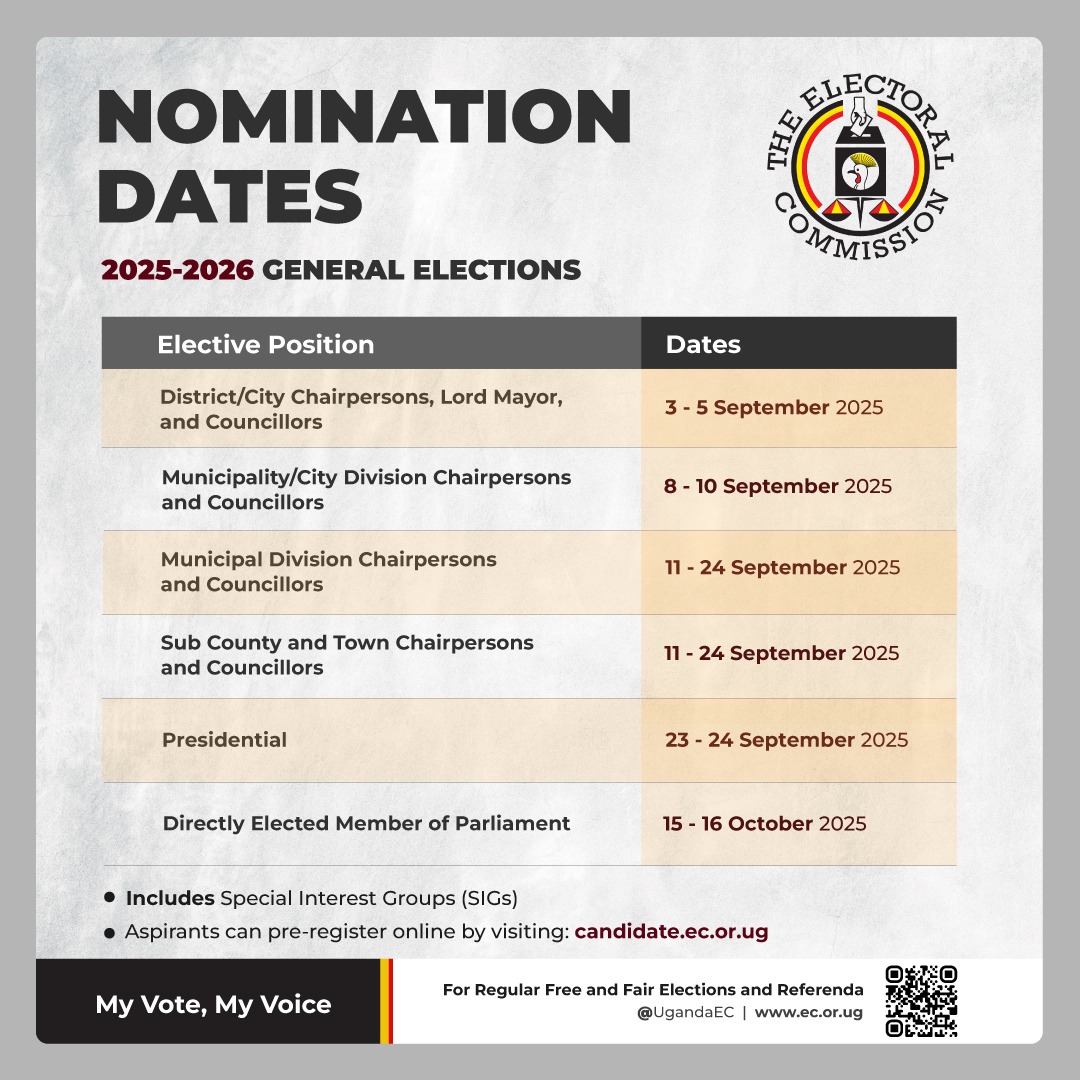MBALE; President Yoweri Kaguta Museveni has urged Ugandans to protect the peace and stability that the National Resistance Movement (NRM) government has built over the past four decades, warning that losing it would undermine the progress and prosperity the country has achieved.
The President made the call while addressing a grand rally in Mbale City, marking the conclusion of his campaign trail across the Bugisu Sub-region.
He emphasized that Uganda’s enduring peace remains the NRM’s most significant achievement since 1986, rooted in the party’s ideological rejection of sectarianism.
“The NRM brought peace to Uganda because of the way we look at things. We don’t believe in sectarianism religion, tribe, or looking down on women. Because of that ideology, we have been able to build a strong party that wins elections in the first round and create stability in our politics,” President Museveni said.
He added that this peace has provided the foundation for strong state institutions, including the army, police, judiciary, and service commissions, all grounded in professionalism and patriotism.
The President identified development as the second key pillar of NRM’s contribution to Uganda’s progress, noting that the government’s investments in infrastructure have transformed both the economy and social welfare.
“Here in Mbale, you can audit what we have done. We repaired and worked on the Mbale–Soroti road, the Mbale–Budaka road, and the Mbale–Bubulo–Bugobero road. Work has started on the Mbale–Magale–Namisindwa road, while in plan we have the Mbale–Nkonkonjeru road (20km) and the longer Butaleja road (90km),” he said.
President Museveni noted that improved road networks are now complemented by electricity expansion and reliable telecommunication services across Bugisu, connecting even the most remote communities.
“You have telephones everywhere now, and electricity has reached most places. The remaining task is to extend it to the few areas not yet covered,” he added.
The President also highlighted remarkable progress in water access, noting that out of Mbale District’s 613 villages, 484 now have access to safe water, representing 79 percent coverage.
“Mbale District has 613 villages, and 484 of them have safe water about 79%. That leaves 21% without, and we are going to cover those. There is also piped water in many towns such as Mbale Municipality, Nambale, Nakaloke and Nabumali,” he said.
He emphasized that the government is focusing on water for production and irrigation to boost agricultural productivity and mitigate the effects of climate change.
“We are investing in irrigation because we must stop depending only on rain-fed agriculture. Using the mountains and valleys properly will increase productivity and prevent disasters like mudslides,” he explained, citing ongoing projects such as the Namatala Irrigation Scheme and Nakusi Solar-Powered Irrigation Scheme, as well as the Wabukhasa Communal Valley Tank and Solar Irrigation System that already serve thousands of farmers.
President Museveni also pointed to ongoing rehabilitation works on the Tororo–Mbale–Kampala–Gulu–Pakwach railway line as a major step toward improving transport efficiency and facilitating trade.
Turning to education, he highlighted the expansion of government schools as evidence of the NRM’s commitment to social transformation.
“When I was at Ntare School in 1961, we had many boys from Bugisu because there were few schools across the country. But today Mbale alone has 21 government secondary schools, and that makes me very happy,” he said.
He reiterated his pledge to strengthen free education in government institutions, blaming its partial failure on mismanagement by some school administrators.
“In these skilling hubs, I train young people for just six months, and they become useful to society, producing goods we used to import from Italy and China. In the next government, I want us to get serious with free education in government schools,” the President added.
Museveni further reminded Ugandans of the distinction between *development* which he described as public infrastructure and wealth, which belongs to individual households.
“Development is ours, but wealth is yours and for your family. We have built the infrastructure, but each family must now create wealth,” he said, citing government programs such as the Parish Development Model (PDM) and Emyooga as key enablers of household economic empowerment.
He revealed that the government will inject an additional Shs15 million into every parish under PDM for local leadership structures and establish special funds to support cultural and religious groups, unemployed university graduates, and ghetto youth.
Highlighting job creation, the President noted that while government directly employs about 480,000 people, private investments in agriculture, manufacturing, and services now provide 1.3 million jobs three times more than public employment.
“Jobs come from wealth from commercial agriculture, manufacturing, ICT, services and artisanship. A country where most jobs come from the government is doomed,” he said.
Museveni emphasized that Uganda’s economy has remained resilient despite international pressure, particularly after Western countries cut aid in protest of Uganda’s anti-homosexuality stance.
“Even when they cut aid because we rejected homosexuality, Uganda kept progressing. Our economy remains one of the fastest growing in the world,” he said.
He reaffirmed that with oil production expected to commence next year, Uganda is on the verge of a “qualitative leap” in infrastructure and service delivery.
“Nobody can disturb our peace. Anybody who tries will be dealt with. We must protect the gains we have made and move into the future with confidence,” he cautioned, assuring Ugandans of stability during and after elections.
As he concluded his Bugisu Sub-region campaign, President Museveni reiterated that peace, development, wealth creation, jobs, and free education remain central to Uganda’s transformation journey.
He urged residents of Mbale to uphold the NRM’s vision by embracing commercial production and preserving the stability that has made their region a model for progress.
The NRM Vice Chairperson for Eastern Region, Mr. Calvin Echodu, thanked the President for his continued support to Bugisu and urged citizens to reject tribalism, describing it as a threat to national unity.
The NRM Chairperson for Mbale, Mr. Moses Wambogo, also commended the President for his steadfast commitment to developing the region and pledged continued mobilization for the NRM’s success.
Background: Bugisu’s Development and Political Significance
The Bugisu Sub-region, located in Eastern Uganda, has been one of the NRM’s strongholds since the early 1990s, playing a vital role in consolidating the party’s political dominance in the east. The region, which includes Mbale City, Manafwa, Bududa, Sironko, and Namisindwa districts, is known for its fertile land, mountainous terrain, and vibrant agricultural economy.
Over the years, Bugisu has benefited from major government investments in road networks, education, and health infrastructure. Mbale City, upgraded to city status in 2020, has emerged as a key commercial hub linking Eastern and Northern Uganda to Kenya, attracting new investments in manufacturing, trade, and real estate.
Government projects such as the Namatala Irrigation Scheme, the rehabilitation of the Tororo–Mbale railway line, and expansion of rural electrification have positioned the sub-region as a critical driver of Uganda’s economic growth.
The Parish Development Model (PDM) and Emyooga initiatives have also gained traction in Bugisu, with thousands of households now participating in commercial agriculture, particularly in coffee, dairy, and horticulture production.
As Uganda approaches another election cycle, the President’s message of peace, wealth creation, and socio-economic transformation continues to resonate strongly in Bugisu, where communities have witnessed tangible progress under NRM’s development agenda.


